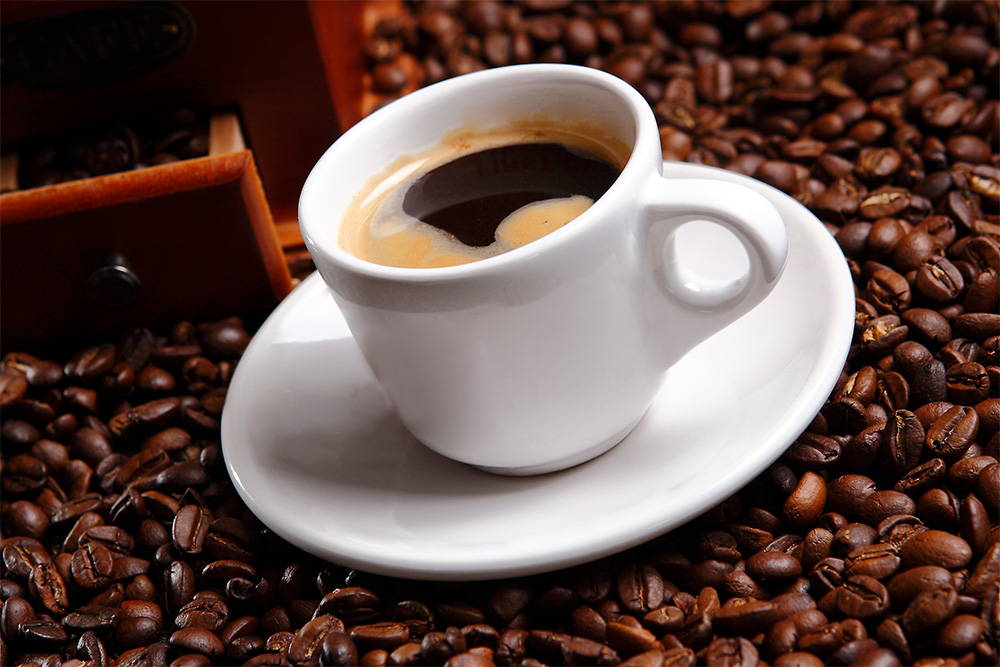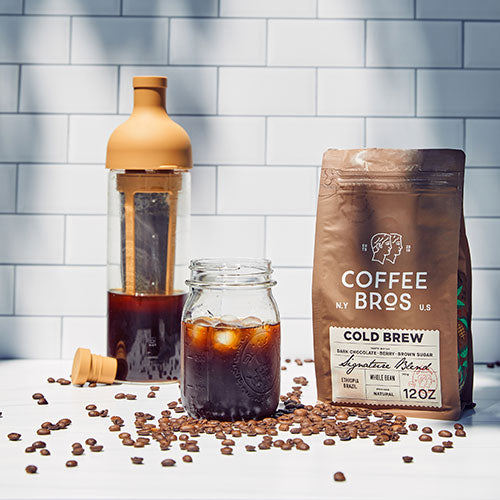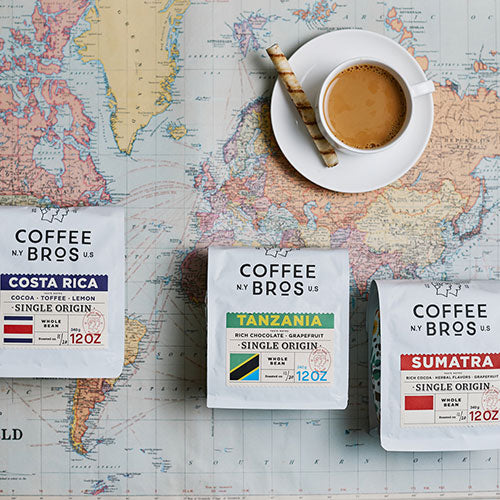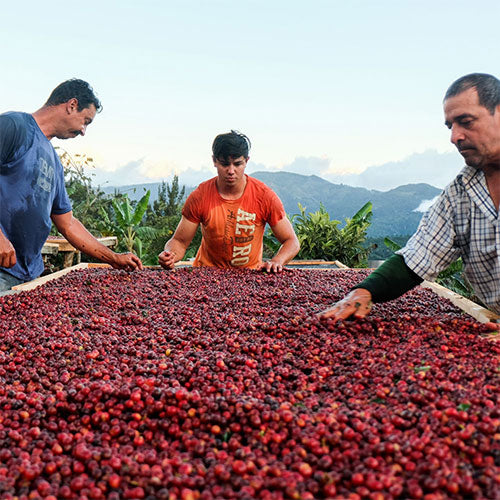There's something truly terrible about a cup of coffee that's so bitter you can't taste any of the other flavors. It's harsh on the taste buds and brings down the mood—a sad way to start the day.
But if your coffee tastes bitter, you don't have to simply accept it. You can fix it… and it's actually pretty easy.
Here, we'll show you how.
Coffee Subscription Deal
Subscribe to Coffee Bros. coffee for 25% off when using code "FTSUB25" at checkout
Here's Why Your Coffee Tastes Bitter (It's Important)
Bitter coffee comes down to two things: (1) bad beans and (2) bad brewing.
If you buy low-grade, robusta species, or super dark roast beans—I'm sorry—but there's nothing to be done there. Low-quality coffee just tastes bitter, which is why we suggest buying specialty-grade beans (the highest quality grade).
But if you're already buying good beans, the problem… is you.
(No offense, we're here to help.)
Bitter coffee is usually over-extracted coffee. Essentially, the beans get over-brewed and start to give off extra flavors you don't want in your cup—all the bitter stuff.
We go into detail about the stages of extraction in this blog, if that sounds interesting to you.
So here's how over-extracted coffee usually happens:
- Your beans are ground too finely. The smaller the coffee ground, the faster the water extracts flavors from it—the bigger the ground, the more time it takes. So if you're using coffee grounds that are too fine, they'll give off all their balanced flavors and then move onto the not-so-good stuff.
- You brewed the grounds for too long. There's a sweet spot where the coffee tastes just right, but if you pass it, that's when the extra bitter flavors come from. With a french press, maybe you waited too long to press down the filter. With a pour over cone, maybe your grounds are so fine that the water took too long to drain (extending the brew time beyond that sweet spot).
- Your water is too hot. Water between 195 and 205 degrees is best for making balanced coffee (according to science). Go any hotter and you can easily over-extract all the bitter flavors earlier than they're supposed to come.
- You used too much water. If you blew past a balanced coffee to water ratio and used too much water, that means each individual coffee ground had access to more water than it needed—so it was able to extract more than is ideal (the bitter stuff).
Now here's the thing: everyone enjoys a different amount of bitterness—and that's a good thing. You shouldn't ever feel weird about liking beans that are more bitter than the person next to you does.
Go with what makes you happy. That's what coffee's all about anyway.t
4 Ways To Fix Bitter Coffee, Straight From Baristas
Keep in mind that coffee beans are a natural agricultural product—not made in a factory somewhere. It's totally normal if one bag tastes a little different from the next.
Even if you make your coffee the exact same way, your new bag may not taste the same as the last bag of beans. No worries though—that's just how fresh food works!
To fix your bitter coffee, you'll need to make small adjustments to your technique to make it taste balanced again.
So remember: bitter coffee is over-extracted coffee, which means the goal is to extract less.
Here are four barista-approved ways you can extract less at home:
- Grind your beans more coarsely (intermediate). The larger grounds won't extract so quickly, but they'll also make it easier for water to drain in pour over brewing (which will shorten the total brew time by a few seconds).
- Cut down the brewing time (easy). This can happen a few different ways. If you're using an immersion brewer like a french press, you can simply press down the filter 20 seconds earlier and see if that does the trick. For pour over brewing, you can pour in your water faster, or you can use a coarser grind for faster water draining.
- Let your water cool a bit (easy). At low elevations, water boils between 205 and 212, which is too hot for your delicate coffee grounds. Give it 1-2 minutes to cool a few degrees and see if your brew is balanced again.
- Use a little less water (harder). With less water to go around, each individual coffee ground doesn't have as much access to fresh water to extract into. If you're using a pour over cone, using less water will also mean you cut down the brewing time, because it won't take as long to pour your water.
Warning: Only try one of these fixes as a time, and don't make the changes big.You don't want to swing the other direction and end up with sour (under-extracted) coffee.
It can take 2-3 small changes to find that balanced sweet spot again,but it'll take fewer tries as you get more comfortable with the process. Listen to your taste buds—they'll lead the way.
How To Taste Good Bitterness
Let's be clear: there will always be a small amount of bitterness in coffee, even specialty-grade beans.
And that's a good thing.
A gentle, balanced bitterness creates a layer of deep flavors that the brighter tasting notes can stand on. It can also lead to interesting flavors that wouldn't have been possible otherwise.
Here are a few flavor note examples of what delicious bitterness can taste like:
- Deep and creamy, like dark chocolate 🍫
- Warm and complex, like chestnut 🌰
- Bitter-sweet, like a pineapple 🍍




